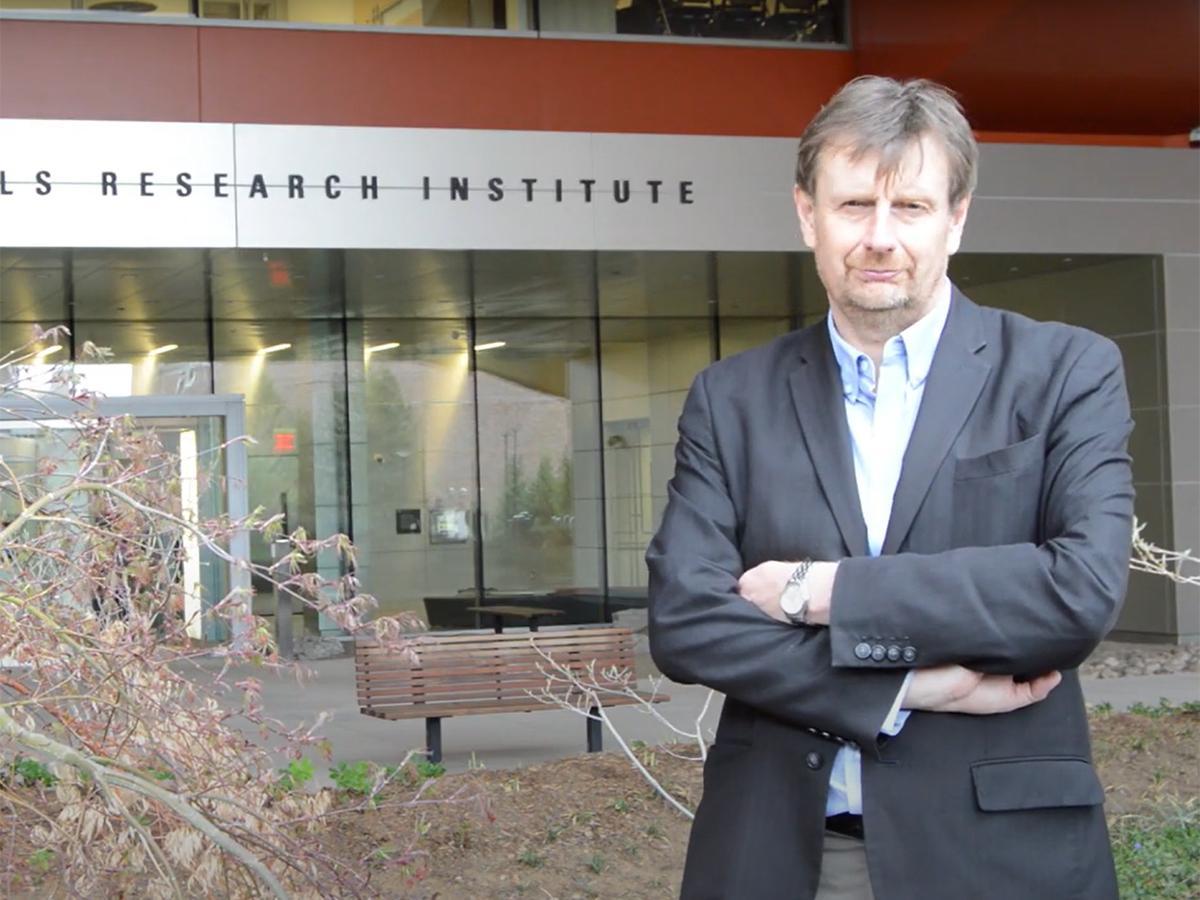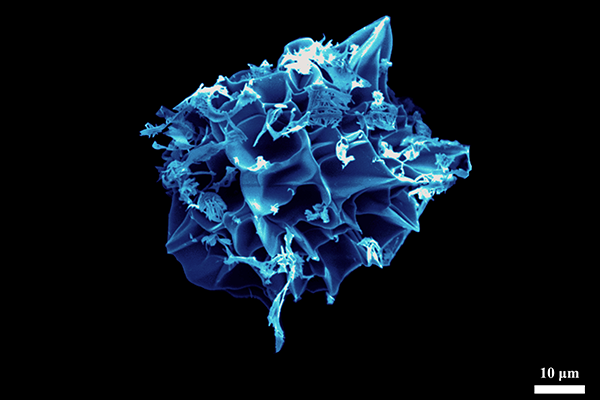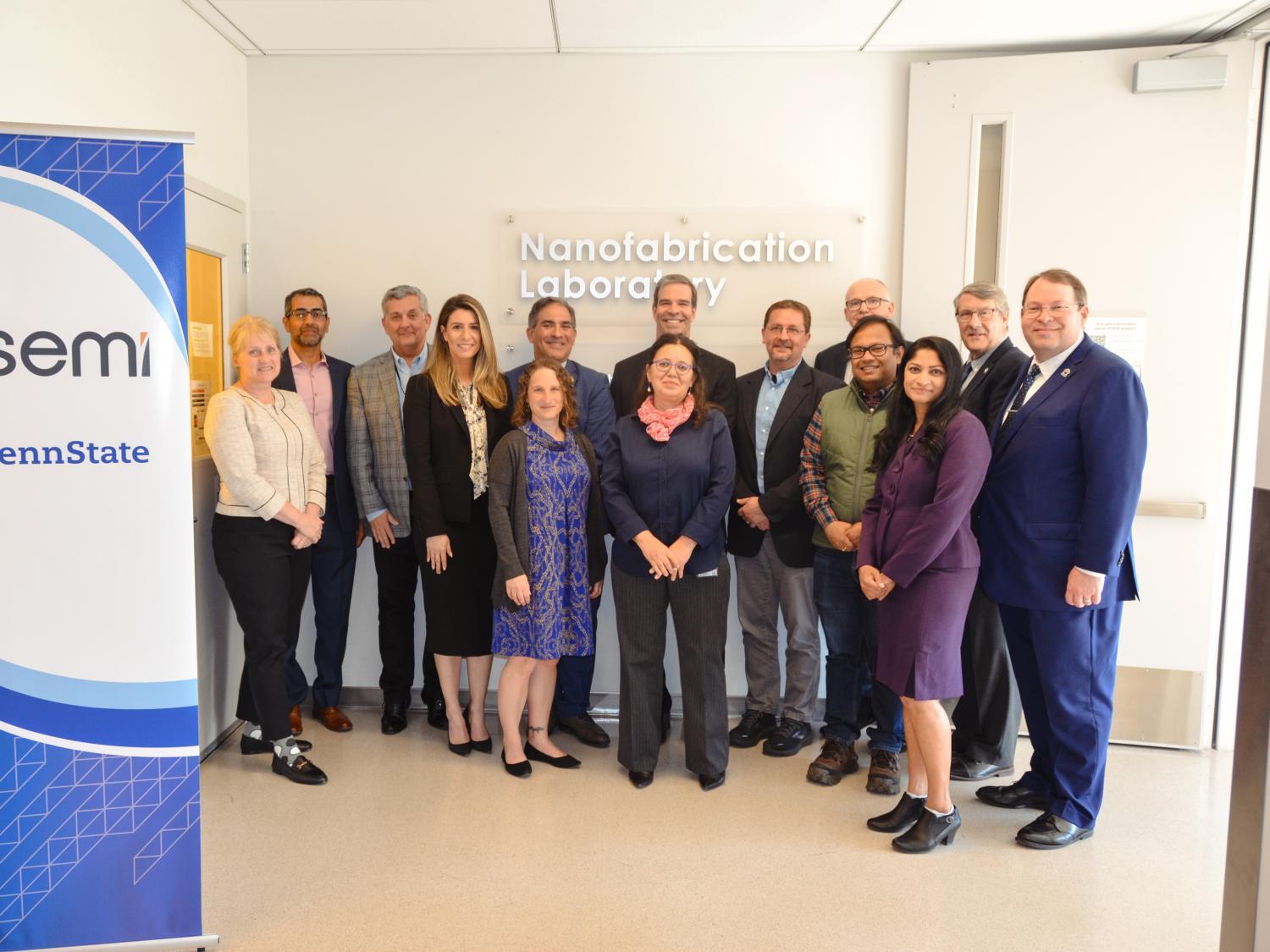Sulfur-based compounds produced in our bodies help fight inflammation and create new blood vessels, among other responsibilities, but the compounds are delicate and break down easily, making them difficult to study. A team led by Penn State scientists have developed a new method to generate the compounds — called polysulfides — inside of cells, and the work could potentially lead to advances in wound treatment and tissue repair.
The Erickson Discovery Grant, which funds independent research projects for undergraduate students, has been awarded to 43 recipients this year.
The Penn State Center for Innovative Materials Processing through Direct Digital Deposition (CIMP-3D) is now accepting registrations online for a three-day additive manufacturing (AM) practicum aimed at industry members and academics, including Penn State students, postdoctoral scholars and faculty.
Clive Randall, distinguished professor of materials science and engineering and director of the Materials Research Institute at Penn State, has been named an Evan Pugh University Professor. The Evan Pugh University Professorship is the highest distinction bestowed upon faculty by Penn State.
Move over, graphene. There’s a new, improved two-dimensional material in the lab. Borophene, the atomically thin version of boron first synthesized in 2015, is more conductive, thinner, lighter, stronger and more flexible than graphene, the 2D version of carbon. Now, researchers at Penn State have made the material potentially more useful by imparting chirality — or handedness — on it, which could make for advanced sensors and implantable medical devices. The chirality, induced via a method never before used on borophene, enables the material to interact in unique ways with different biological units such as cells and protein precursors.
Recycling does not necessarily prevent an item from eventually ending up in a landfill, according to Enrique Gomez, interim associate dean for equity and inclusion and professor of chemical engineering in the Penn State College of Engineering. Instead, recycling simply delays its end of life. Plastic bottles that are recycled and then turned into carpet, for example, eventually end up in the landfill when the carpet gets worn out and is thrown away.
Michael Mervosh has been named Penn State's College of Earth and Mineral Sciences’ student marshal, the top graduate overall; and Brenden Franks has been named the college’s science honor marshal, the top graduate in a non-engineering discipline. They will be recognized during the college’s spring 2024 commencement ceremony, scheduled for 1 p.m. on Saturday, May 4, in the Pegula Ice Arena on Penn State's University Park campus.
The winners of the 16th annual Materials Visualization Competition (MVC), a scientific visual and artistic competition sponsored by the Department of Materials Science and Engineering (MatSE) and the Materials Research Institute (MRI) at Penn State, have been announced. MVC celebrates the quality of research in materials at Penn State and promotes awareness of materials science through visualization.
Penn State and Morgan Advanced Materials have signed a memorandum of understanding (MOU) to catalyze research and development of silicon carbide, known as SiC, a semiconductor material that operates more efficiently at high voltages than competing technologies. This agreement includes a new five-year, multimillion-dollar initiative and a commitment by Morgan to become a founding member of the recently launched Penn State Silicon Carbide Innovation Alliance, as well as to supply the graphite materials and solutions needed for SiC development to Penn State for use by internal and external partners.
The 2024 David Ford McFarland Award Lecture for Achievement in Metallurgy will be held at 3:05 p.m. Thursday, April 11, in 111 Wartik Laboratory on Penn State's University Park campus. Melissa Marshall, vice president of global audit, risk and controls at Westinghouse Electric Co., will deliver the lecture, “How MatSE prepared me for a career that I love (outside of MatSE).”











